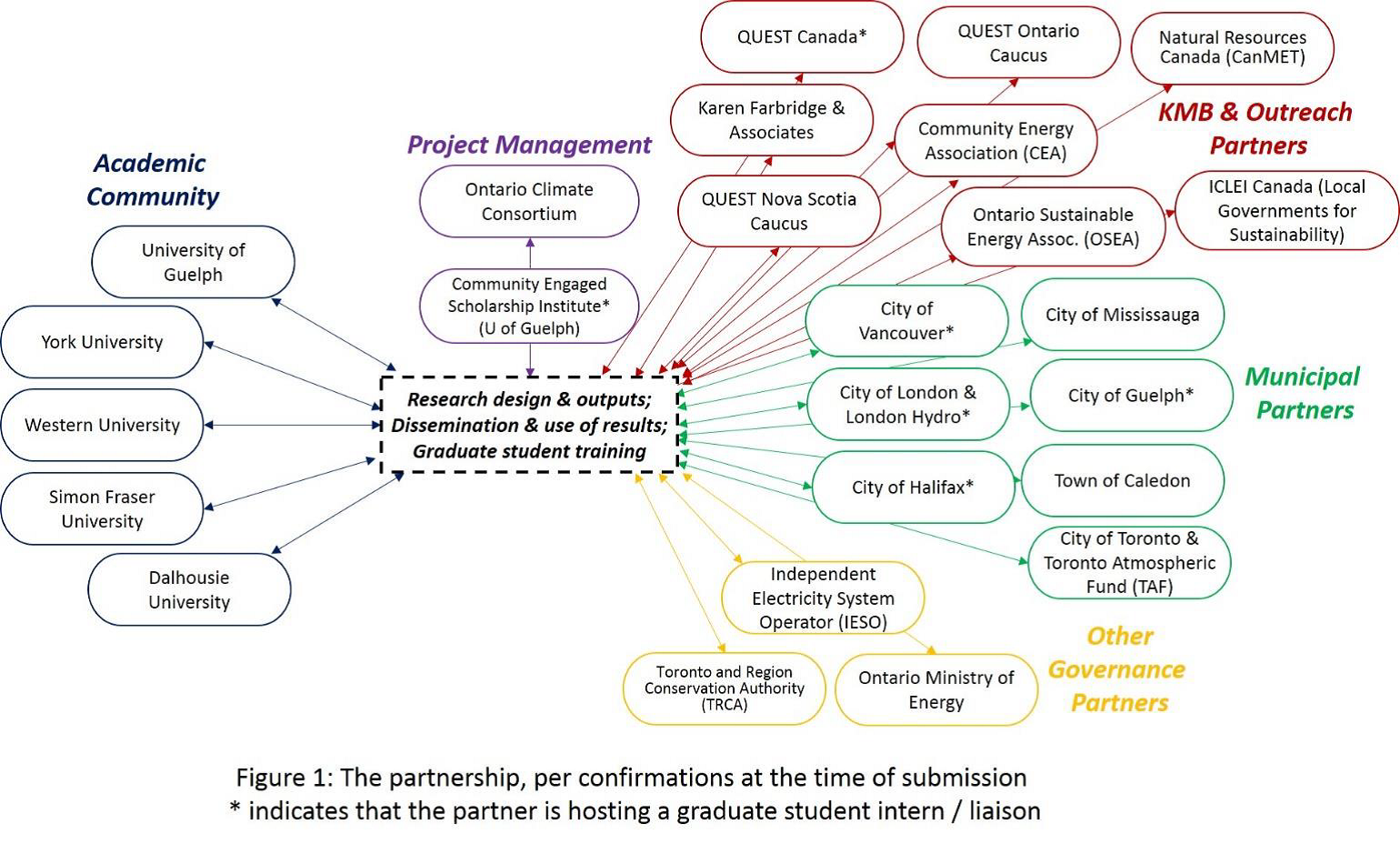April 7, 2016
OCC to Coordinate Community Energy Planning Study
In Ontario, as in many other jurisdictions, governance over energy systems is being decentralized to build community resilience and improve the efficacy of climate change mitigation efforts. This strategy takes form in the practice of community energy planning (CEP), broadly defined as the integration of urban planning and energy management practices.
Thanks to a three-year Partnership Development Grant awarded by the Social Sciences and Humanities Research Council (SSHRC), the Ontario Climate Consortium will coordinate an academic-policy collaborative focused on analyzing the governance challenges, implications, and enabling conditions for implementing CEP.
Over the next three years, our efforts will revolve around two interconnected questions:
- How can energy governance be decentralized but not balkanized? Cities are nested within multiscalar and interdependent energy infrastructure systems and legislative/regulatory regimes. The partnership will study the implications of CEP processes and outcomes for both regional economies and multi-level governance, and will identify effective strategies for cross-scalar coordination.
- How can energy governance be standardized but not universalized? The opportunities and challenges associated with CEP implementation vary across jurisdictions based on differences in capacity and assets, as well as intra- and inter-municipal arrangements. The partnership will identify meaningful differences that might help translate best practices across jurisdictions more effectively, and provide a basis for establishing targeted provincial and municipal policies.

THE RESEARCH will consist of multi-site, cross-jurisdictional comparative analyses of CEP governing frameworks, processes and outcomes in Ontario, Nova Scotia and British Columbia. In collaboration with a steering committee of non-academic partners, and through cross-disciplinary mixed methods, we aim to:
- Identify how CEPs envision, and are incorporated into, cross-jurisdictional planning initiatives.
- Assess and compare across jurisdictions the extent to which existing policies, legislation and regulations within and across governance levels are aligned to facilitate CEP initiatives.
- Assess and compare, across cities of various sizes and complexity, the challenges and creative solutions associated with CEP development and its implementation (controlling for regulatory context). This includes an assessment of intra-municipal arrangements and creative energy service business models, such as public-private partnerships, that translate into success.
THE PARTNERSHIP reflects a shared interest in seeing publicly-funded research directly serve communities across Canada that are working to implement integrated energy solutions to improve their environmental and economic outlook. We have organized to leverage comparative strengths across multiple groups:
- Research expertise and infrastructure from five of Canada’s leading universities: University of Guelph, Dalhousie University, Simon Fraser University, Western University and York University.
- Practitioner expertise from communities across Canada at various stages of maturity in terms of CEP: Town of Caledon, City of Guelph, Halifax Regional Municipality, City of London, Mississauga, City of Toronto and City of Vancouver.
- Multi-level governance and planning expertise from various agencies: municipalities, provincial ministries, electricity system operators and conservation authorities.
- Strong momentum in knowledge translation from top civil society organizations, such as QUEST and Community Energy Association.

Five graduate students will participate in internships as part of an innovative model of engaged scholarship and student training. This pilot intern program is designed to improve institutional capacity across multiple partners, while enabling in-depth research. Partnership activities and formal procedures will be managed by the Ontario Climate Consortium and University of Guelph’s Community Engaged Scholarship Institute.
For more information about this project please contact Ian McVey, Project Manager with the Ontario Climate Consortium: imcvey@trca.on.ca.




Comments are closed here.